ВЖИВАННЯ ЧИСЛІВНИКІВ
Випадки вживання
Cases of usage
|
Приклади
Examples
|
1. В англійській системі цифрових знаків розряди цілих багатозначних чисел відділяються комою (соmmа). Кома може опускатись у 4-значних числах і не вживається у роках
2. У десяткових дробах ціле число відділяється від дробу крапкою (point). Кожна цифра читається окремо:
0 (нуль) читається nought [no:t] або [Ov] в ВЕ, або zero в АЕ. Якщо ціле число рівне нулю, то нуль читається nought або зовсім не читається
3. Для позначення телефонних номерів вживаються кількісні числівники. Кожна цифра називається окремо і робиться пауза після трьох або чотирьох названих цифр. Коли підряд йдуть дві однакові цифри у ВЕ перед цифрою вживається слово double
4. Номери сторінок, розділів, параграфів, частин книг, актів п’єс, номери будинків, квартир, кімнат, розміри одягу та взуття позначаються кількісними числівниками, які ставляться після означуваного іменника. Іменники у таких випадках вживаються без артикля
5. Для позначення років вживаються кількісні числівники, причому спочатку називають число сотень, а потім десятків і одиниць
6. В ВЕ дата на письмі позначається так:
Можливо написання суфіксів порядкових числівників після числа місяця:
В АЕ прийнято писати спочатку місяць, потім число і через кому рік:
7. Імена королів та королев вживаються з порядковими числівниками
8. Відсотки позначаються кількісними числівниками.
9. У простих дробах числівником є кількісний числівник, а знаменником – порядковий. Якщо числівник більший від одиниці, то знаменник має закінчення – s:
Числівник 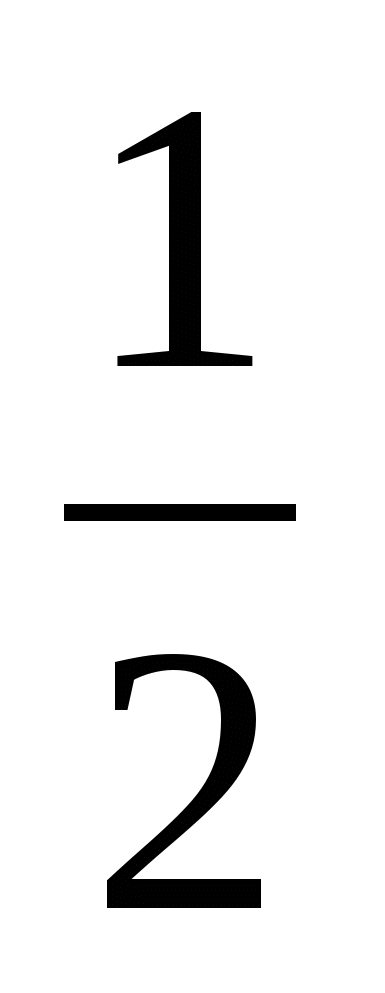 і і 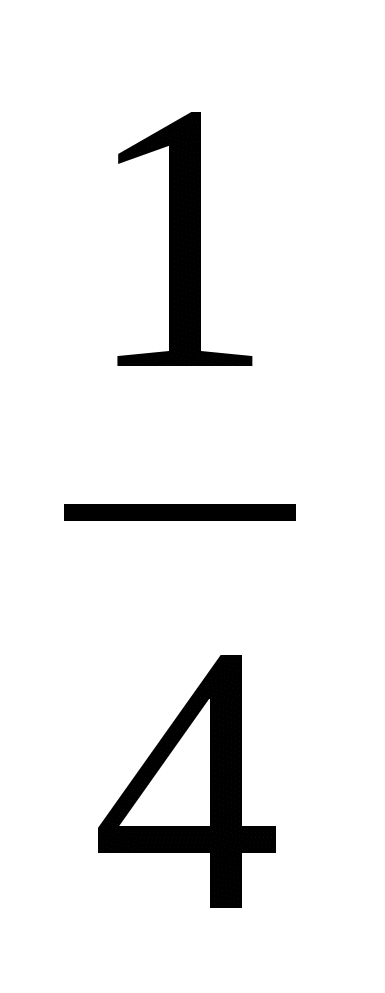 читаються: читаються:
При читанні мішаних чисел між цілою і дробовою частиною вживається сполучник and:
10. Для позначення математичних підрахунків вживаються наступні конструкції з кількісними числівниками:
3 + 4 = 7
10 – 7 = 3
3 x 4 = 12
9 : 3 = 3
11. Для позначення часу дня вживаються кількісні числівники. Слово o’clock вживається тільки при позначенні годин без хвилин і може опускатись у розмовній мові. Можливі два шляхи позначення часу: у розмовному мовленні перевага віддається формам типу half past six (6.30), а форми типу six – thirty використовуються коли мова йде про розклад.
Після числівника може вживатись скорочення a.m. [ei em], яке позначає години від першої ночі до 12-ї дня, а також p.m. [pi:em], яке позначає години від 12-ї дня до 12-ї ночі
Слово minutes може опускатись після цифр 5,10,20,25, але повинно вживатись після інших цифр:
Американці часто вживають after та of:
12-а год. дня може позначатись словами:
12-а год. ночі:
12. Іменник, що має означення, виражене кількісним числівником, вживається без артикля:
13. Іменник, що має означення, виражене порядковим числівником, вживається з означеним артиклем:
14. Перед hundred, thousand, million, milliard (billion AE) може вживатися числівник onе або неозначений артикль а у значенні “один”:
а/onе hundred, thousand, million, milliard у множині не мають закінчення – s, якщо перед ними стоїть інший числівник:
Якщо ці числівники вживаються у функції іменника у значенні “сотні” (книжок), “тисячі” (людей), “мільйони” (років), вони приймають у множині закінчення – s і після них вживається прийменник of з іменником:
|
7,548,324
5,186 or 5186
the year 1948
6.45 = six point four five
0.3 = (nought) point three
17.053 = seventeen point oh / nought five three (Американці говорять “zero” замість “nought” або “oh”
8079433
ВЕ = eight oh seven, nine four double three
AE = eight zero seven, nine four three
three
Page thirty-two – сторінка тридцять друга
Part five – частина п’ята
Room twenty – кімната двадцята
Size thirty-nine – розмір тридцять дев’ятий
1948 = nineteen forty-eight
347 = three forty-seven
1905 = nineteen oh five
1900 = nineteen hundred
2000 = two thousand
2004 twenty oh four
3 June 1948
5 August 1997
20th April, 1995
20/04/95
July 13, 1974
07/13/74
Karl III = Karl the third
Elizabeth II = Elizabeth the second
Save 15% (fifteen per cent [pqsent])
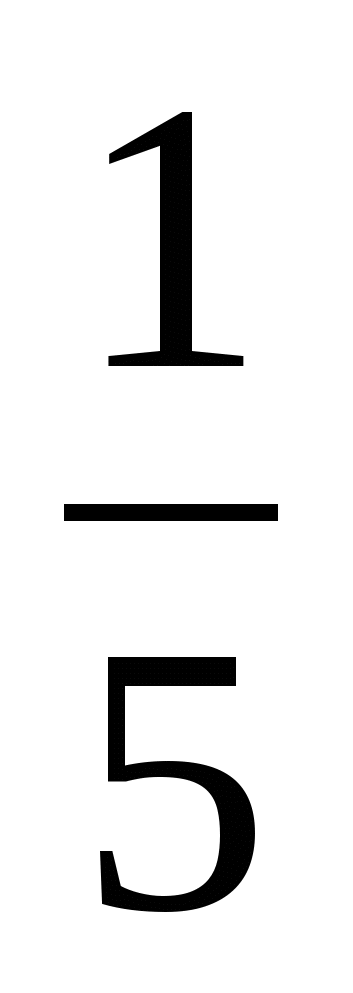 = one fifth = one fifth
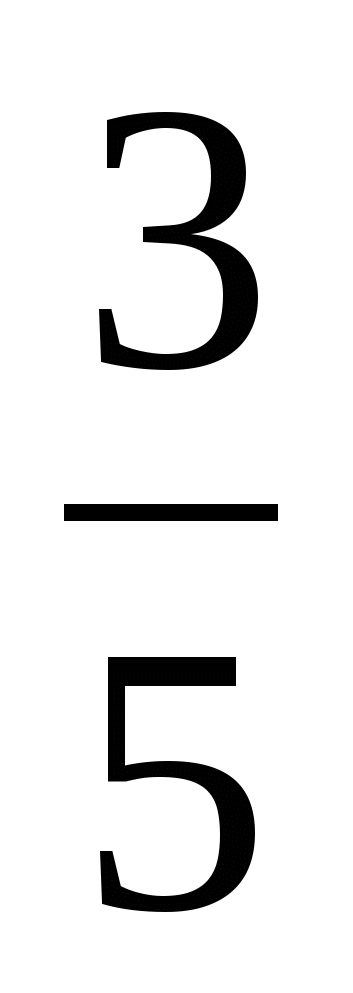 = three fifths = three fifths
 = a (one half), = a (one half),  a (one quarter) a (one quarter)
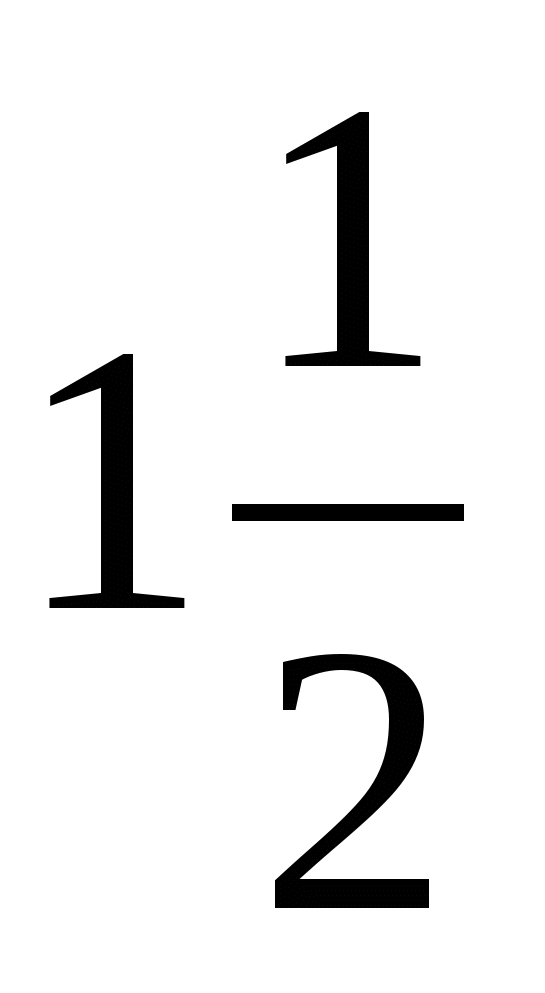 = one and a half = one and a half
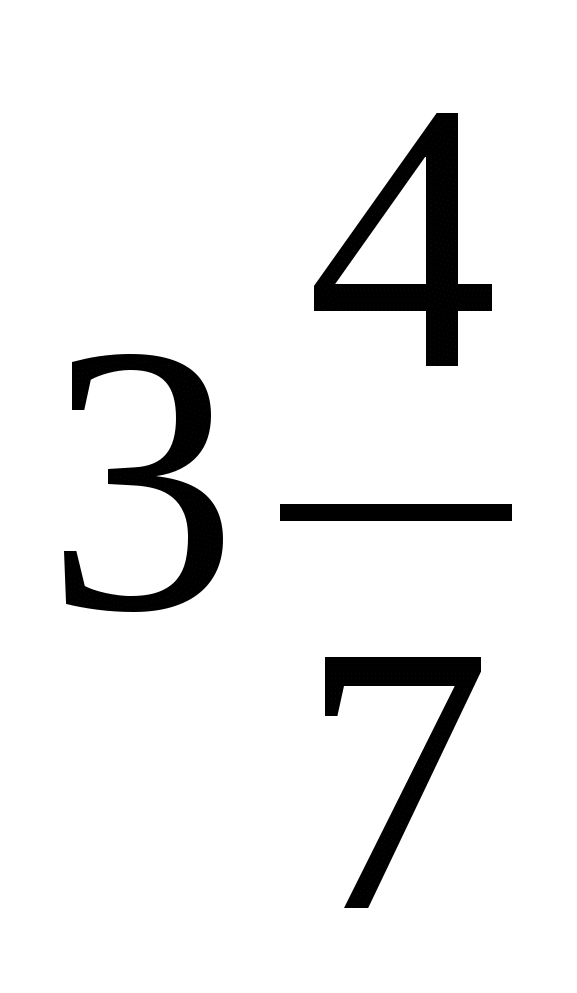 = three and four sevenths = three and four sevenths
Three plus four equals seven
Three and four equals seven
Seven from ten is/ leaves three
Ten take away seven is/ leaves three
Three fours are twelve
Three multiplied by four equals/is twelve
Nine divided by three equals/is three
3.00 = three o’clock
5.05 = five (minutes) past five – five oh five
8.12 = twelve minutes past eight – eight twelve
10.15 = (a) quarter past ten – ten fifteen
9.35 = twenty-five (minutes) to ten – nine thirty-five
10.45 = a quarter to eleven – ten forty – five
My classes begin at 9.00 a.m.
The meeting begins at 5.00 p.m.
4.10 = ten past four, але: 7.12 = twelve minutes past seven
4.10 = ten after four
5.45 = a quarter of five
12 a.m. = midday, noon
12 p.m. = midnight
two interesting books; five lovely pictures, page 9, chapter 1.
the first day, the sixth room.
743 = seven hundred and forty-three
500 = five thousand
hundreds of books, thousands of people, millions of years
|
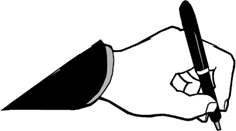 Exercises Exercises
I. Spell the following numerals.
a. 7, 10, 340, 80, 90, 26, 481, 3495, 7356128
b. the ordinal numerals:
1st, 2nd, 3rd, 5th, 8th, 9th, 12th, 99th, 100th, 1000th
c. fractional numerals:
 , , 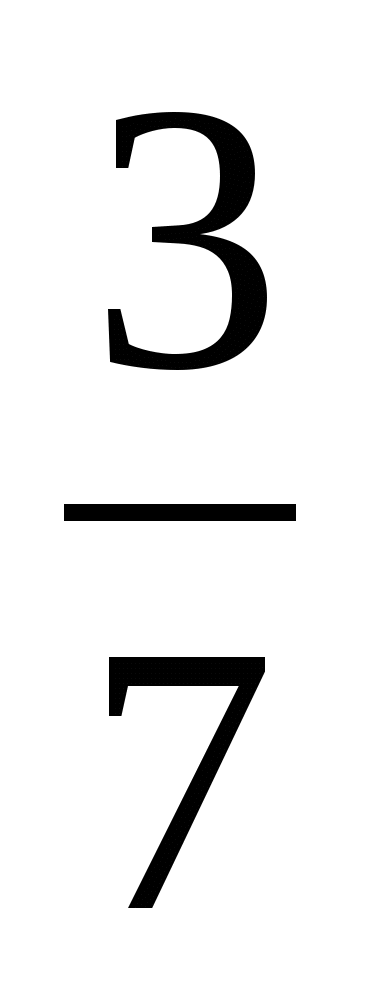 , , 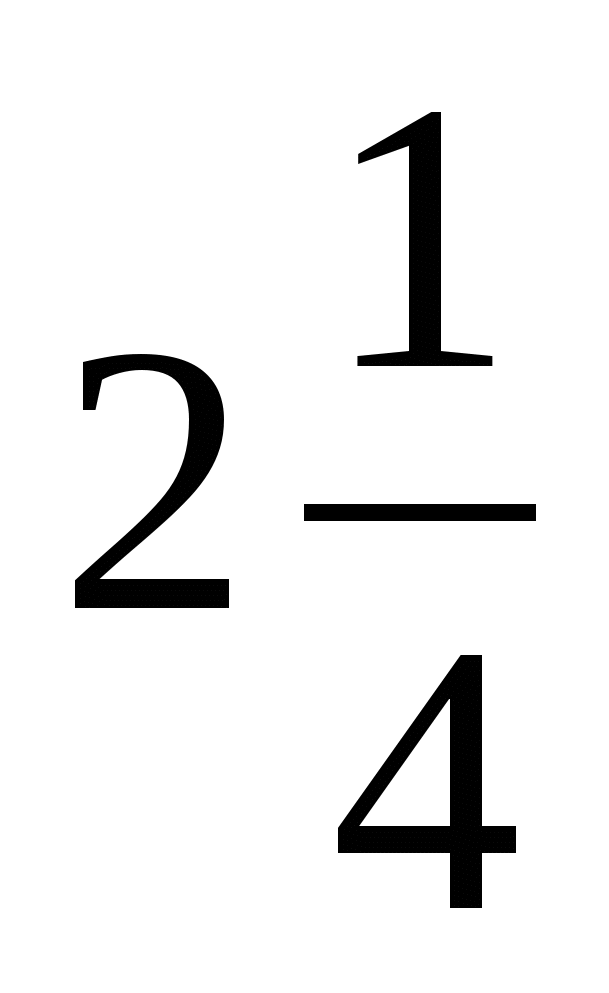 , , 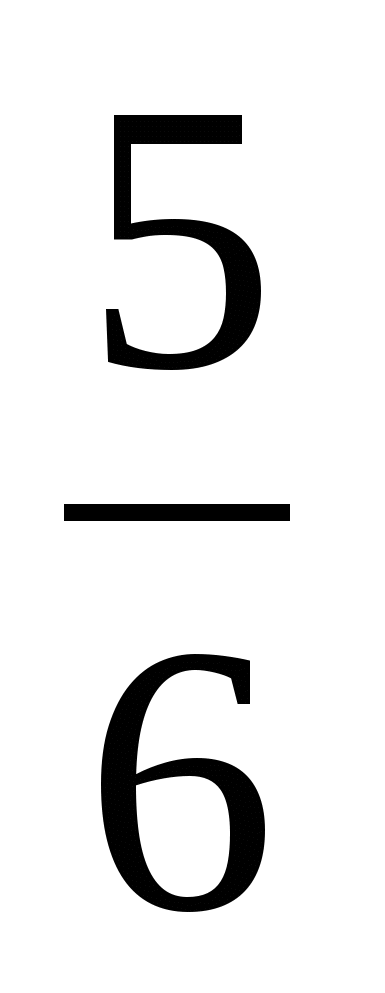
d. decimals:
0,4; 1,45; 15,23; 2,384
e. the dates:
1343, 1570, 1812, 1941, 1994, 2000, 2005
II. Write the figures in words.
1. We drove about 200 miles. __________
2. What’s the population of the city? – Oh, 250000, I suppose. ________
3. Sally is 17 years old; her brother Nick is 19. ____________
4. The 12th month of the year is December.
5. It’s his 60th birthday this Sunday.
6. 35 plus 28 is 63.
III. Put in dozen (s) (of), hundred (s) (of), thousand (s) (of), or million (s) (of):
1. He had to sign his name five _____ times. (hundred)
2. We export 40 ____ tons a year. (million)
3. I just need to borrow a _____ pounds (hundred).
4. I’ve told you ________ times. (million)
5. Could I have two ______ eggs? (dozen)
IV. Unscramble the sentences.
1. hundred / been / he / Paris / has / times / to.
2. about / talked / a / we / things / hundred.
3. Eighth / you / famous / what / Henry / do / the / is / know / for?
4. half / they / to / an / for / had / hour / wait.
5. note /I / a / five – pound / and / purse / some / had / in / change / the.
V. Translate the sentences.
1. Ти можеш доїхати туди автобусом №20.
2. Я прийшла рівно о сьомій годині.
А ти на 10 хвилин запізнився.
3. В Україні видають сотні цікавих газет і журналів.
4. У Києві більше двох з половиною мільйонів жителів.
5. Розгорніть підручники на сторінці 89.
6. Запиши мою адресу – вулиця Гагаріна, будинок 25, квартира 43.
Це на сьомому поверсі.
7. Ти знаєш, що “Динамо” виграло з рахунком 2:0?
8. Після землетрусу тисячі людей залишились без житла.
9. Через деякий час вони святкуватимуть п’ятисоту річницю свого міста.
10. Який в тебе номер телефону? Записуй: 8-03578131.
VI. Change these from written to spoken or from spoken to written form:
1. the sixth March, nineteen seventy-six. __________
2. October the fifteenth, nineteen sixty – two. ____________
3. the eighteenth of June, nineteen eleven. _________
4. 19 May 1970. ________
5. 8 March 2002. _________
6. 14 January 2004. _________
VII. Write the following all in words.
Your telephone number.
Your date of birth.
The approximate population of your home village /town and your country.
VIII. Translate the following phrases:
записи 1980 року; сотні книжок та журналів; тисячі людей; на восьмому поверсі; п’ятирічна дівчинка; 60-ті роки 20 століття; Єлизавета ІІ; у 1945 році; сім і три чверті; одна п’ята; 414 аудиторія.
IX. Complete the crossword then find the number in the down word.
a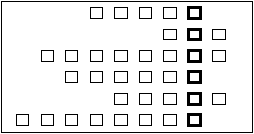 . You win if you are the … to finish. . You win if you are the … to finish.
b. 4th four, 3rd three, 2nd …
c. There are … days in a fortnight.
d. The number after ten.
e. How many minutes are in an hour?
f. … is the second month of the year.
ПРИКМЕТНИК
(The Adjective)
|
Прикметник – означає ознаку або властивість предмету.
І. Місце прикметника в реченні
1. Вживається перед іменником: e.g. a clever child;
після дієслів be, look, smell, sound, feel, taste, seem, appear, become, get, stay:
e.g.She is thin. He seems tired.
|
2. Прикметник, який виражає думку, оцінку вживається перед прикметником, який виражає факт, істину
e.g. a handsome, young man.
|
3. Якщо в реченні вживаються декілька прикметників, то вони мають таку послідовність: Size Age Shape Colour Origin Material
e.g.A big old round white French China plate
|
II. Виконує функції:
означення: e.g. It is an easy text;
іменної частини складного іменного присудка: e.g. It is easy.
|
III. Виражає ознаки: кольору (pink, red, black);
смаку (better, tasty, sweet);
зовнішніх та внутрішніх властивостей (tall, quite, blue-eyed);
форми, розміру (round, narrow, wide).
|
Якісні прикметники мають ступені порівняння.
Синтетичний
спосіб утворення
|
Звичайний ступінь
S
одно-
складові
hort
Big
Dry
F ar ar
P
дво-
складові
retty
Clever
Complete
Severe
|
Вищий ступінь
shorter
bigger
drier
farther
prettier
cleverer
completer
severer
|
Найвищий ступінь
shortest
biggest
driest
farthest
prettiest cleverest
completest
severest
|
Аналітичний спосіб утворення
|
Interesting
|
more interesting
|
most
interesting
|
Деякі прикметники утворюють ступені порівняння від різних коренів.
Звичайний ступінь
|
Вищий ступінь
|
Найвищий ступінь
|
good – добрий
bad– поганий
little – малий
|
better – кращий
worse – гірший
less – менш
|
best – найкращий
worst – найгірший
least – найменший
|
Деякі прикметники мають два ряди ступенів порівняння.
Звичайний ступінь
|
Вищий
ступінь
|
Найвищий
ступінь
|
old – старий
|
older – старший (за віком)
elder – старший (за старшинством у родині)
|
oldest – найстаріший
eldest – найстарший (у родині)
|
far – далекий
|
farther – дальший (за відстанню)
further– дальший (за порядком)
|
farthest – найдальший (за відстанню)
furthest – найдальший (за порядком)
|
near – близький
|
nearer – ближчий
|
nearest – найближчий (за відстанню)
next – найближчий (наступний за порядком)
|
late – пізній
|
later – пізніший (за часом)
latter – останній з двох перелічуваних
|
latest – найпізніший (за часом)
|
Конструкції для вираження порівняння
Конструкції
|
Перекладається
|
Приклади
|
as…as
|
такий же + прикметник + які
|
The text is as difficult as that one. – Цей текст такий же важкий, як і той.
|
twice as…as
|
у два рази + прикметник у вищому ступені +ніж
|
This suit is twice as cheap as that one. – Цей костюм у два рази дешевший, ніж той.
|
not so…as
|
не такий + прикметник + як
|
This vase is not so expensive as that one. Ця ваза не така дорога, як та.
|
the…the
|
чим + прикметник у вищому ступені + прикметник у вищому ступені
|
The more he grows the stronger he becomes. – Чим більше він підростає, тим сильнішим стає.
|
much…than
|
набагато + прикметник у вищому ступені + ніж
|
Peter is much older than my brother is. – Петро набагато доросліший, ніж мій брат.
|
than
|
прикметник у вищому ступені + ніж
|
He is older than my brother. – Він старший, ніж мій брат.
|
 Exercises Exercises
I. Use the correct form of the adjective:
It is interesting to know that
1. Wall Street in Manhattan is the financial heart of the USA and the (important) banking centre in the world.
2. Pork Avenue in New York has the (large), (expensive) apartment houses.
3. Central Park is the (beautiful), (green) oasis in the middle of New York’s concrete desert.
4. Fifth Avenue is the (famous) shopping centre of New York.
5. Many people think that New York offers (good), (big) and (bright) of everything.
6. New York is one of the (noisy) cities in the world.
7. An ostrich egg is very big and very hard. It is (big) than twenty-two hen’s eggs.
8. The (large) crabs in the world live in Japanese waters.
9. The world’s (small) independent state is Vatican City, where the Pope lives.
10. One of the (small) countries is San Marino, Italy. It is also the (old), because it was founded 1,500 years ago.
II. Discuss with your partner.
Which profession (hobby, sports) do you think is:
1) the most dangerous? 2) the most difficult? 3) the easiest? 4) the most exciting? 5) the most boring? 6) the most expensive? 7) the cheapest? 8) the most interesting
III. Find the Ukrainian equivalents of the English proverbs and sayings.
1. Hunger is the best sauce. 2. A poor man is better than a liar. 3. A bird in the hands is worth two in the bush. 4. Blood is thicker than water. 5. Eats or West, home is best. 6. It is easier to be generous than grateful. 7. The saddest dog sometimes wags its tail. 8. Nurture is stronger than nature. 9. As clear day as daylight. 10. Welcome is the best dish on the table. 11. As cold as steel. 12. As good as gold. 13. As quiet as a lamb. 14. As welcome as snow in harvest.
1. Тихіший води, нижчий трави. 2. Потрібен, як п’яте колесо. 3. Золота людина. 4. Холодний як крига. 5. Гостинність – найкраща страва на столі господаря. 6. Ясно як день. 7. Навіть найсумніший собака іноді махає хвостом. 8. Виховання сильніше за природу. 9. Легше бути щедрим, ніж вдячним. 10. У гостях добре, а вдома краще. 11. Хто рідніший, той і цінніший. 12. Краще синиця в жмені, ніж журавель у небі. 13. Краще бути бідняком, ніж брехуном. 14. Кому голод приправа, тому смакує страва.
IV. Make sentences with the same meaning by using as… as
Example: This room is smaller than that room. – This room isn’t as big as that room.
1. An animal is less intelligent than a human being.
2. Algebra is more difficult than arithmetic.
3. Money is less important than good health.
4. A wooden chair is less comfortable than a sofa.
5. A van is smaller than a bus.
V. Work in pairs. Practice making comparisons.
Example: Name something that is sweeter than an apple.
Student A: What’s sweeter than an apple?
Student B: Candy is sweeter than an apple.
1. Name a country that is larger than Mexico.
2. Name an animal that is as dangerous as a wild tiger.
3. Name something that is more expensive than a diamond ring.
4. Name something that is less important than good health.
5. Name an animal that isn’t as strong as a horse.
VI. Write about one or more of the following topics.
1. Kyiv. Compare it to your hometown.
2. Two members of your family. Compare them.
3. Two countries. Compare them.
Checklist of words used in comparisons
|
The same (as)
|
like
|
- er/more
|
Similar (to)
|
alike
|
less
as… as
|
Different from
|
|
but
|
VII. Look at the marks and say what Bob can do better (worse) than Mary.
|
Maths
|
Reading
|
Essays
|
Cooking
|
Swimming
|
Running
|
Chess
|
Tennis
|
Bob
|
10
|
9
|
7
|
5
|
9
|
10
|
10
|
8
|
Marry
|
7
|
10
|
9
|
10
|
8
|
9
|
7
|
10
|
VIII. Let’s play the game.
Task 1. The following adjectives describe a man named Nick. A man named Jack doesn’t have the same qualities. Draw pictures of Nick and Jack on the board. Compare Nick to Jack.
Example: tall.
Response: Nick is taller than Jack.
1. Tall 2. strong 3. lazy 4. young 5. happy 6. kind.
Task 2.
Try to remember the following idioms as quickly as you can:
|
As free as a bird
As busy as a bee
As pale as the moon
As light as a fly
|
As brave as a lion
As true as a dog
As quick as a cat
As funny as the kitten
|
As cold as ice
As thin as paper
As good as gold
As wet as fish
|
Then shut the book and find two corresponding parts of the expressions in the cards on the table.
Task 3. Who can make the best compliment?
Make a compliment to a girl from your group. Use adjectives in the superlative degree.
(She may use the following commentaries: Thank you, I’m happy to know that. Thanks for a compliment. You don’t say so! Do you really mean it? You make me blush).
МОДАЛЬНІ ДІЄСЛОВА
(Modal Verbs)
|
Can
Modal Use
|
Positive Forms
1. = Present
2. = Past
3. = Future
|
Negative Forms
1. = Present
2. = Past
3. = Future
|
You can use:
|
can
general ability
фізична або розумова здатність, уміння або можливість
|
1. I can speak Chinese
2. SHIFTS TO “could”
I could speak Chinese when I was a kid.
3. SHIFTS TO “be able to” I will be able to speak Chinese by the time I finish my course.
|
1. I can’t speak Swahili.
2. SHIFTS TO “could”
I couldn’t speak Swahili.
3. SHIFTS TO “be able to”
I won’t be able to speak Swahili.
|
to be able
|
can
permission
дозвіл
|
1. I can drive Susan’s car when she is out of town.
2. SHIFTS TO “be allowed”
I was allowed to drive Susan’s car while she was out of town last week.
3. I can drive Susan’s car while she is out of town next week.
|
1. I can’t drive Susan’s car when she is out of town.
2. SHIFTS TO “be allowed”
I wasn’t allowed to drive Susan’s car while she was out of town last week.
3. I can’t drive Susan’s car while she is out of town next week.
|
may
|
can
request
прохання
|
Can I have a glass of water?
Can you give me a lift to school?
(Requests usually refer to the near future.)
|
Can’t I have a glass of water?
Can’t you give me a lift to school?
|
could
may
|
can
possibility / impossibility
ймовірність / можливість / неймовірність
|
Anyone can become rich and famous if they study and work hard.
Learning English language can be her real future career.
(This use is usually a generalization or supposition)
|
It can’t cost more than a dollar or two.
You can’t be 45! I thought you were about 18 years old.
(This use is usually a generalization or supposition.)
|
could
|
Could
Modal Use
|
Positive Forms
1. = Present
2. = Past
3. = Future
|
Negative Forms
1. = Present
2. = Past
3. = Future
|
You can use:
|
could
possibility
ймовірність / можливість
|
1. John could be the one who stole the money.
2. John could have been the one who stole the money.
|
1. Mary couldn’t be the one who stole the money.
2. Mary couldn’t have been the one who stole the money.
|
might, may
|
could
condition
(can, could)
умова
|
1. If I had more time, I could travel around the world.
2. If I had had more time, I could have travelled around the world.
3. If I had more time this winter, I could travel around the world.
|
1. Even if I had more time, I couldn’t travel around the world.
2. Even if I had
had more time, I couldn’t have travelled around the world.
3. Even if I had more time this winter, I could travel around the world.
|
could suggestion
порада / пропозиція / вказівка / натяк
|
1. NO PRESENT FORM
2. You could have spent your vacation in Hawaii.
3.You could spend your vacation in Hawaii.
|
NO NEGATIVE FORMS
|
|
could
past ability
можливість / здатність / уміння у минулому
|
I could run ten miles in my twenties.
I could speak Chinese when I was a kid.
|
I couldn’t run more than a mile in my twenties.
I couldn’t speak Swahili.
|
be able to
|
could
polite request
ввічливе прохання
|
Could I have something to drink?
Could I borrow your stapler?
(Requests usually refer to the near future.)
|
Couldn’t he come with us?
Couldn’t you help me with this?
(Requests usually refer to the near future.)
|
May
Modal Use
|
Positive Forms
1. = Present
2. = Past
3. = Future
|
Negative Forms
1. = Present
2. = Past
3. = Future
|
You can use:
|
may
possibility
припущення / можливості, що залежать від певних обставин: з відтінками сумніву, невпевненості
|
1. Jack may be upset. I can’t really tell if he is annoyed or tired.
2. Jack may have been upset. I couldn’t really tell if he was annoyed or tired.
3. Jack may get upset if you don’t tell him the truth.
|
1. Jack may not be upset. Perhaps he is tired.
2. Jack may not have been upset. Perhaps he was tired.
3. Jack may not get upset, even if you tell him the truth
|
might
|
may
permission
дозвіл
|
1. You may leave the table now that you’ve finished with your dinner.
2. SHIFT TO “be allowed to”
You were allowed to leave the table after you finished your dinner.
3. You may leave the table when you finish your dinner.
|
1. You may not leave the table. you’ve not finished with your dinner yet.
2. SHIFT TO “have to”
You were not allowed to leave the table because you hadn’t finished your dinner.
3. You may not leave the table until you are finished with your dinner.
|
can
|
may
request
прохання
|
May I borrow your eraser? May I make a phone call?
(Requests usually refer to the near future.)
|
NO NEGATIVE FORM
|
can, might
|
Might
Modal Use
|
Positive Forms
1. = Present
2. = Past
3. = Future
|
Negative Forms
1. = Present
2. = Past
3. = Future
|
You can use:
|
might
possibility
припущення з можливістю, що залежить від певних обставин; з відтінком сумніву, невпевненості
|
1. She might be on the bus. I think her car is having problems.
2. She might have taken the bus. I’m not sure how she got to work.
3. She might take the bus to get home. I don’t think Bill will be able to give her a ride.
|
1. She might not be on the bus. She might be walking home.
2. She might not have taken the bus. She might have walked home.
3. She might not take the bus. She might get a ride from Bill.
|
could, may
|
might
condition
(may, might)
умова
|
1. If I entered the contest, I might actually win.
2. If I had entered the contest, I might actually have won.
3. If I entered the contest tomorrow, I might actually win. Unfortunately, I can’t enter it.
|
1. Even if I entered the contest, I might not win.
2. Even if I had entered the contest, I might not have won.
3. Even if I entered the contest tomorrow, I might not win.
|
|
might
suggestion
порада
|
1. NO PRESENT FORM
2. You might have tried the cheese cake.
3. You might try the cheese cake.
|
1. NO PRESENT FORM
2. PAST FORM UNCOMMON
3. You might not want to eat the cheese cake. It’s very calorific.
|
could
|
might request
(British form)
прохання (британський варіант)
|
Might I have some-
thing to drink?
Might I borrow the stapler?
(Requests usually refer to the near future.)
|
NEGATIVE FORMS UNCOMMON
|
could, may,
can
|
Must
Modal Use
|
Positive Forms
1. = Present
2. = Past
3. = Future
|
Negative Forms
1. = Present
2. = Past
3. = Future
|
You can use:
|
must
certainty
впевненість / припущення, що межує з упевненістю
|
1. That must be Jerry. They said he was tall with bright red hair.
2. That must have been the right restaurant. There are no other restaurants on this street.
3. NO FUTURE FORM
|
1. That must not be Jerry. He is supposed to have red hair.
2. That must not have been the right restaurant. I guess there is another one around here somewhere.
3. NO FUTURE FORM
|
have to
|
must not
prohibition
заборона
|
You must not swim in that river. It’s full of crocodiles.
You must not forget to take your malaria medication while your are in the tropics.
(Prohibition usually refer to the near future.)
|
–
|
should
|
must
strong recommendation
(Americans prefer the form “should”)
наказ / порада (американці віддають перевагу формі “should”)
|
1. You must take some time off and get some rest.
2. SHIFT TO “should”
You should have taken some time off last week to get some rest.
3. SHIFT TO “should”
You should take some time off next week to get some rest.
|
1. You mustn’t drink so much. It’s not good for your health.
2. SHIFT TO “should”
You shouldn’t have drunk so much. That caused the accident.
3. SHIFT TO “should”
You shouldn’t drink at the party. You are going to be the designated driver.
|
|
must
necessity
(Americans prefer “ to have to”)
обов’язок / необхідність (американці віддають перевагу “ to have to”)
|
1. You must have a permit to enter the national park.
2. SHIFT TO “have to”
We had to have a permit to enter the park.
3. We must get a permit to enter the park next week.
|
1. SHIFT TO “have to” We don’t have to get a permit to enter the national park.
2. SHIFT TO “have to”
We didn’t have to get a permit to enter the national park.
3. SHIFT TO “have to”
We won’t have to get a permit to enter the national park
|
have to
|
Ought to
Modal Use
|
Positive Forms
1. = Present
2. = Past
3. = Future
|
Negative Forms
1. = Present
2. = Past
3. = Future
|
You can use:
|
ought to recommendation
advice
рекомендація / порада
|
1. You ought to stop smoking.
2. Margaret ought to have exercised more so she would be better prepared for the marathon.
3. Margaret ought to come to the fit-
ness center with us tonight.
|
1. Mark ought not drink so much.
2. Margaret ought not have run the marathon. She wasn’t in good shape.
3. Margaret ought not stay at home in front of the TV. She should go to the fit-
ness center with us.
|
should
|
ought to
assumption, expectation, probability
припущення / очікування / ймовірність
|
1. This stock ought to increase in value.
2. She ought to have received the package yesterday.
3. She ought to receive the package tonight.
|
“Ought not” is used primarily to express negative recommendations.
(Americans prefer “should not”)
|
should
|
* Remember that “ought to” loses the “to” in the negative. Instead of “ought not to”, we say “ought not”
|
Will
Modal Use
|
Positive Forms
1. = Present
2. = Past
3. = Future
|
Negative Forms
1. = Present
2. = Past
3. = Future
|
You can use:
|
will
future action, prediction
майбутня дія / передбачення / прогноз
|
The marketing director will be rep-
laced by someone from the New York office.
The meeting will be over soon.
He thinks it will rain tomorrow.
The river will overflow its banks every spring.
|
The marketing director will not be replaced after all.
Fred will not be there. He has a previous obligation.
|
shall
|
will
voluntary action, promising
бажана дія / обіцянка
|
I will take care of everything for you.
I will make the travel arrangements. There’s no need to worry.
I promise that I will write you every single day.
|
I will never forget you.
I will never give up the fight for freedom.
|
shall
|
will
willingness
бажання
|
I will wash the dishes if you dry.
We’re going to the movies. Will you join us?
|
|
|
will
intention
намір
|
I will do my exercises later on.
|
|
Would
Modal Use
|
Positive Forms
1. = Present
2. = Past
3. = Future
|
Negative Forms
1. = Present
2. = Past
3. = Future
|
You can use:
|
would
polite request offers
ввічливе прохання / запрошення
|
Would you mind if I opened the door?
Would you like another cup of tea? I would like the roast duck, please.
|
|
will
|
would
desire
бажання
|
I would like to visit Canada soon.
My parents would like to meet your parents as soon as possible.
|
I wouldn’t like to see her.
|
|
would
condition
умова
|
1. If he were an actor, he would be in adventure mo-
vies.
2. If I had been president, I would have cut the cost of education.
3. If I were elected president next year, I would cut the cost of education.
|
1. If I were president, I would not raise taxes.
2. If I had been president, I would not have raised taxes.
3. If I were president, I would not sign the tax increase next week.
|
|
would
past of “will”
(минулий час від “will”)
|
I knew that she would be very successful in her career.
He told me he would be here before 8:00.
|
I said I wouldn’t help you.
|
|
would
regret or irritation
співчуття / роздратованість
|
I wish it would snow.
|
I wish you wouldn’t keep interrupting me.
|
|
would
volition
воля / бажання
|
I would leave the table if I were you.
|
I wouldn’t leave the table if I were you.
|
will
|
would
repetition in past/ habitual activity
повторювана регулярна дія у минулому
|
When he was young, he would always do his homework.
When I was small, we would always visit relatives on Christmas Day.
|
When I was a kid, I wouldn’t go into the water by myself.
When he got older, he would never do his homework.
|
used to
|
Shall
Modal Use
|
Positive Forms
1. = Present
2. = Past
3. = Future
|
Negative Forms
1. = Present
2. = Past
3. = Future
|
You can use:
|
shall
future action
(British form)
майбутня дія (британський варіант)
|
I shall be replaced by someone from the New York office.
I shall be there by 8:00.
|
I shall not be replaced after all.
I shall not be there. I have a previous obligation.
|
will
|
shall
suggestion
порада / звертання до співбесідника з метою дістати від нього вказівки
|
Shall we begin dinner?
Shall I help you?
Shall we move into the living room?
|
|
should
|
shall
voluntary action
promise
(British form)
добровільна дія / обіцянка (британський варіант)
|
I shall take care of everything for you.
I shall make the travel arrangements. There’s no need to worry.
|
I shall never forget where I came from.
I shall never give up the fight for freedom.
|
will
|
shall
inevitability
(British form)
неминучість / невідворотність
(британський варіант)
|
Man shall explore the distant regions of the universe.
We shall overcome oppression.
I’m afraid Mr. Smith shall become our new director.
|
Man shall never give up the exploration of the universe.
He shall not be held back.
|
|
Should
Modal Use
|
Positive Forms
1. = Present
2. = Past
3. = Future
|
Negative Forms
1. = Present
2. = Past
3. = Future
|
You can use:
|
should
obligation or
necessity
обов’язок / необхідність
|
I should be at work before 9:00.
Do you think I should apply for that job?
The equipment should be inspected regularly.
|
NO NEGATIVE FORMS
|
be sup-
posed to
must
(weak form)
|
should
recommendation
advisability
рекомендація / порада
|
1. You should focus more on your family and less on work.
2. Frank should have eaten low-fat foods. That might have prevented his heart attack.
3. You really should start eating better.
|
1. Sarah shouldn’t call him.
2. You shouldn’t have ordered that chocolate dessert – you’re not going to finish it.
3. Sarah shouldn’t smoke when she visits Martha next week. Martha hates when people smoke in her house.
|
ought to
|
should
expectation
очікування / припущення з відтінком упевненості
|
1. By now, they should already be in Dubai.
2. They should have had our reply by now.
3. Susan should be in New York by next week. Her new job starts on Mon-
day.
|
1. John shouldn’t tell Beatrice his plans.
2. Susan shouldn’t have arrived in New York until yester-
day.
3. Susan shouldn’t arrive in New York until next week.
|
ought to, be supposed to
|
should
desirability
бажаність
|
I should prefer iced tea
|
You shouldn’t say things like that.
|
|
 Exercises Exercises
I. Ask questions as in the pattern.
Pattern: Ask your groupmate if he can sing. – Can you sing?
1) if he/she can speak French;
2) if he could play the piano;
3) if she will be able to come to your place tomorrow;
4) if his/her father can repair a radio set;
5) if he can run 100 metres in 13 seconds;
6) if he can drink 5 glasses of water at once;
|
 Скачать 2.7 Mb.
Скачать 2.7 Mb. . You win if you are the … to finish.
. You win if you are the … to finish.

 ar
ar